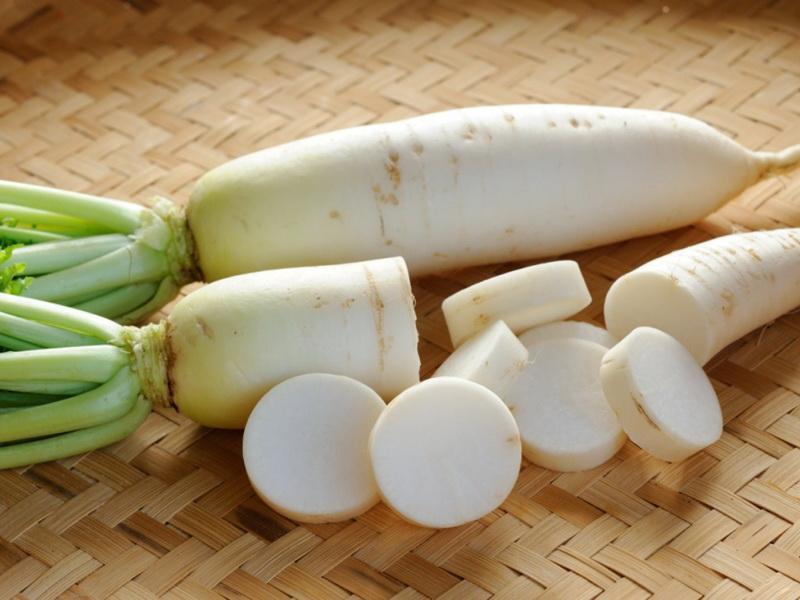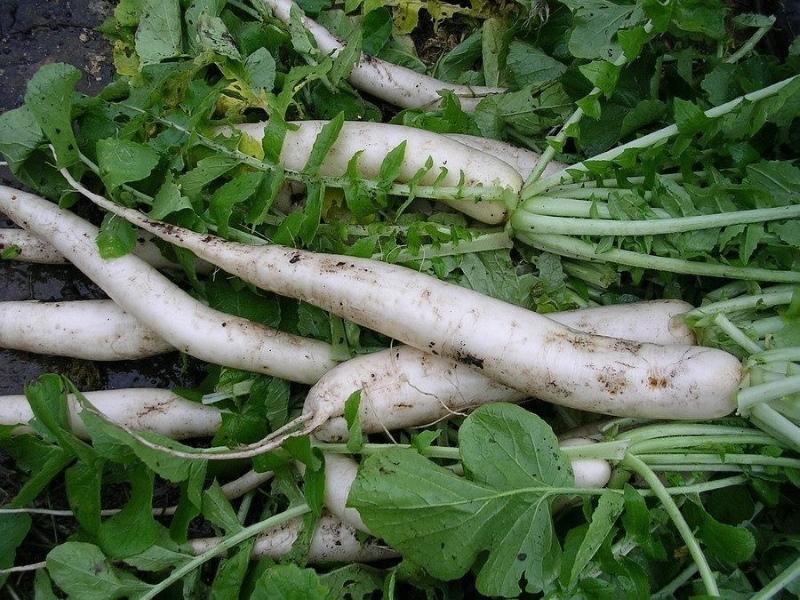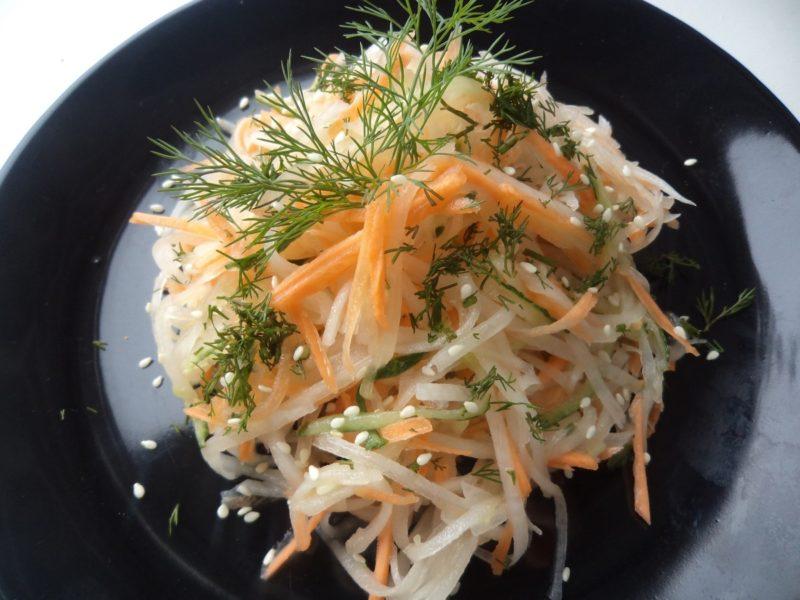Daikon radish - useful properties and contraindications of a sweet root vegetable
 It turns out that its juicy, sweetish pulp is not only tasty, but also has the property of having a beneficial effect on the work of internal organs. Daikon radish - useful properties and contraindications of this root crop were discovered long ago in Asian countries. Today, it is Japan that is the main supplier of daikon and is engaged in its industrial cultivation. Although Russian gardeners are happy to plant this culture. The meaty daikon tastes several times better than our radish. It has less mustard essential oils, so the pulp is sweeter, without sharpness. White radish is consumed mainly fresh in salads, marinated and used as a side dish for meat.
It turns out that its juicy, sweetish pulp is not only tasty, but also has the property of having a beneficial effect on the work of internal organs. Daikon radish - useful properties and contraindications of this root crop were discovered long ago in Asian countries. Today, it is Japan that is the main supplier of daikon and is engaged in its industrial cultivation. Although Russian gardeners are happy to plant this culture. The meaty daikon tastes several times better than our radish. It has less mustard essential oils, so the pulp is sweeter, without sharpness. White radish is consumed mainly fresh in salads, marinated and used as a side dish for meat.
Daikon radish - useful properties and contraindications

But regardless of the variety, all fruits contain a lot of useful substances:
- enzymes;
- vitamins of groups A, B, C;
- calcium;
- iron;
- magnesium;
- phosphorus;
- copper;
- potassium.
Daikon is a low-calorie product, therefore it is included in many diets, including for weight loss. 100 g of pulp contains only 21 kcal, 4 g of carbohydrate and 1.2 g of protein. And the glycemic index is only 15 units, which is very important for patients with diabetes mellitus. White radish is absorbed slowly and does not give sharp spikes in blood glucose.
What happens to the body with regular use of daikon
 The root vegetable will not only replenish the reserves of vitamins and minerals, but also have a healing effect, namely:
The root vegetable will not only replenish the reserves of vitamins and minerals, but also have a healing effect, namely:
- remove toxins;
- relieve puffiness;
- cleanses the skin;
- will contribute to the rapid healing and disinfection of wounds;
- prevent the accumulation of uric acid and, as a result, the development of gout;
- relieve arrhythmia;
- stabilizes pressure;
- cure constipation;
- strengthens the immune system;
- will increase potency;
- slow down aging;
- thanks to calcium, it will serve as the prevention of osteoporosis.
Can everyone eat daikon
 The main contraindications are related to work and stomach conditions. The pulp contains a large amount of fiber, which is undoubtedly beneficial, because it gives a feeling of fullness. However, with diseases of the gastrointestinal tract, the daikon becomes too heavy for the stomach, causes indigestion and flatulence, and it is better not to eat it.
The main contraindications are related to work and stomach conditions. The pulp contains a large amount of fiber, which is undoubtedly beneficial, because it gives a feeling of fullness. However, with diseases of the gastrointestinal tract, the daikon becomes too heavy for the stomach, causes indigestion and flatulence, and it is better not to eat it.
For the same reason, it is not recommended to give daikon to children under 3 years old. Their weak stomachs simply cannot digest that much fiber.
In addition, daikon should not be consumed, especially fresh, for ulcers, pancreatitis and gastritis... But even in the absence of health problems, it is important not to overuse the root vegetable and not overload your stomach. It is advisable to eat radishes no more than twice a week for a total of 200 g.